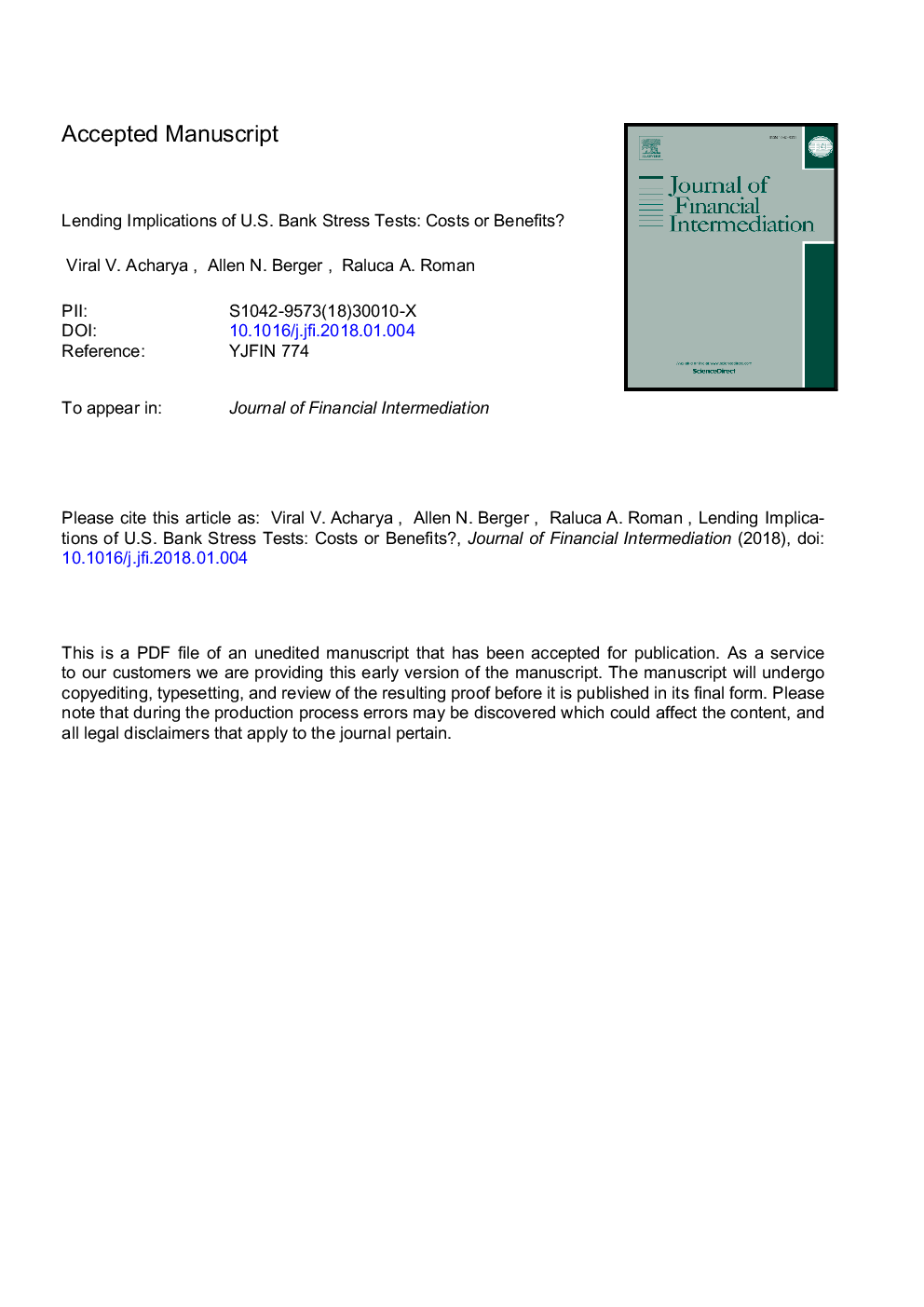| Article ID | Journal | Published Year | Pages | File Type |
|---|---|---|---|---|
| 7362252 | Journal of Financial Intermediation | 2018 | 63 Pages |
Abstract
The U.S. bank stress tests aim to improve financial system stability. However, they may also affect bank credit supply. We formulate and test opposing hypotheses about these effects. Our findings are consistent with the Risk Management Hypothesis, under which stress-tested banks reduce credit supplyâparticularly to relatively risky borrowersâto decrease their credit risk. The findings do not support the Moral Hazard Hypothesis, in which these banks expand credit supplyâparticularly to relatively risky borrowers that pay high spreadsâincreasing their risk. Results are generally stronger for safer banks, banks that passed the stress tests, and the earlier stress tests.
Related Topics
Social Sciences and Humanities
Business, Management and Accounting
Strategy and Management
Authors
Viral V. Acharya, Allen N. Berger, Raluca A. Roman,
